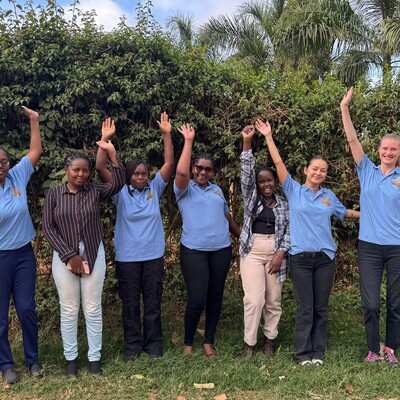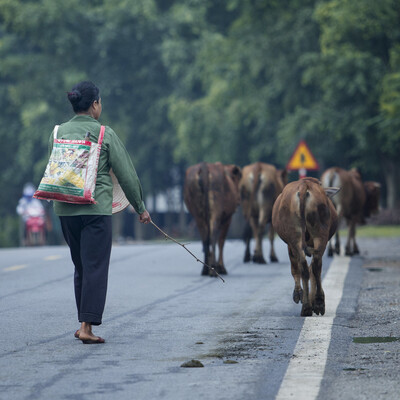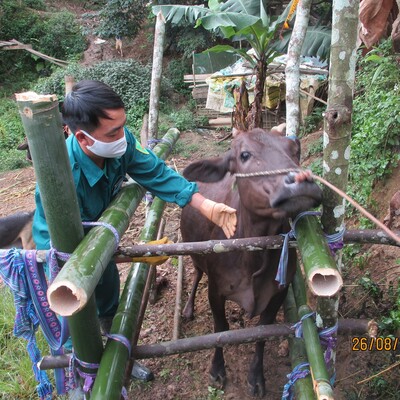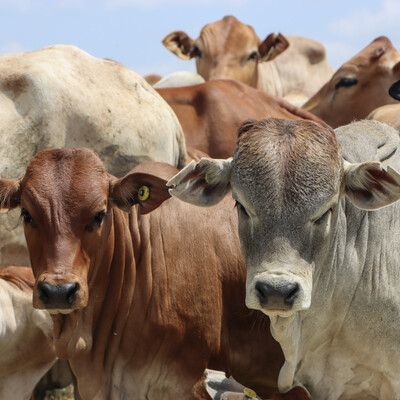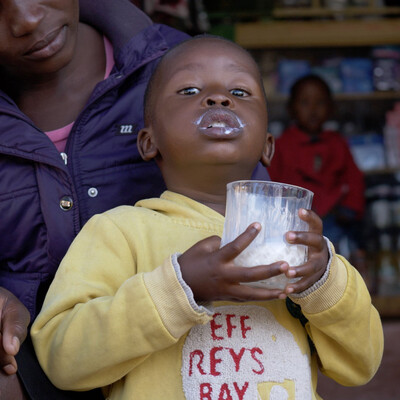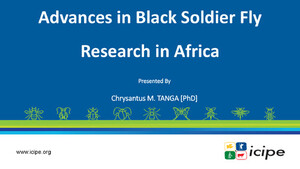
Building resilience: Combatting Marek's disease in Ghana's chicken industry
As part of a multi-institutional effort to address the challenge of Marek's disease (MD) in poultry in Ghana, scientists from the International Livestock Research Institute (ILRI) and the Roslin Institute recently took part in a second Group Model Building (GMB) workshop in Accra. The workshop was part of the MD project, a UK-US-funded research venture on socio-economic and mathematical modeling of poultry genetics and disease.
MD is a highly contagious viral disease of poultry that can cause weight loss, poor feed conversion, and up to 90 per cent mortality in unvaccinated flocks. While limited testing is done for the disease in Ghana, evidence suggests that the disease is ubiquitous in the country, and outbreaks are particularly frequent among smaller-scale commercial chicken operations due to lax vaccination and biosecurity practices.
MD is not treatable once symptoms begin and as a result poses a significant threat to poultry operations and farmer incomes. This workshop explored ways of better managing the disease in Ghana, reviewing farm-level, hatchery operations, policy alternatives, and more.
Under the goal of improving management of MD in the country, the workshop brought together 15 animal health and poultry value chain stakeholders, including farmers, veterinary practitioners, animal scientists, socio-economic researchers, policymakers and representatives of non-governmental organizations. The meeting refined a decision support tool that was developed using a quantitative system dynamics (SD) model from the first GMB workshop in October 2023. At that workshop, researchers, poultry value chain experts and stakeholders investigated the economic impacts of MD in Ghana and how social, epidemiological, production and management factors affect egg production.
Enhancing vaccination for disease eradication
ILRI scientist and project lead in Ghana Dolapo Enahoro presented a recap of the objectives and activities of the MD project. She emphasized the relevance of the GMB approach, the need for stakeholder involvement, and the benefits of stakeholder ownership of the process.
Joshua Aboah of the Commonwealth Scientific and Industrial Research Organisation (CSIRO), Australia, who led development of the SD model, introduced the Marek’s Disease Economic Impact and Trade-off (MaDE-IT) model. The model incorporates production scenarios, revenue structures, and cost inputs to simulate gross margins for various poultry farm management strategies, including the use of local versus imported stock, and cohort versus systematic bird re-stocking approaches. It has user-friendly features that can be utilized by experts and non-experts to simulate farm operations and policy actions in relation to the management of MD, allowing farmers and policymakers to understand and account for potential impacts in their decision-making about the disease.
Andrea Doeschl-Wilson, research group leader at the Roslin Institute and a project collaborator, addressed the challenge of ‘imperfect vaccines’ that protect animals from severe illness, but allow pathogens such as the herpes virus responsible for MD to spread.
‘This ongoing circulation creates the dangers of increased risk of resistance by the pathogen and hinders eradication efforts,’ she said. ‘We are investigating the dangers of imperfect vaccines for Marek’s disease and exploring solutions such as how natural genetic resistance in birds can be combined with vaccination to reduce reliance on imperfect vaccines and ultimately lead to eradication of the disease.’
Refining the system dynamics model
In the participatory workshop, poultry stakeholders and experts discussed ways of improving the SD model. They assessed the different modules in model: financial considerations, integrated production (focusing on the raising of local versus imported birds), disease management, and policy aspects to better understand their impacts on value chain actors.
In particular, the participants highlighted the important role local hatcheries can play in supporting a thriving and sustainable poultry sector in Ghana. But they acknowledged challenges in regulating these hatcheries, which has raised concerns about the quality of birds they produce. Building stronger trust between farmers and hatcheries on vaccination practices emerged as a key priority to help manage MD. Additionally, participants emphasized the importance of farmer education in recognizing and preventing outbreaks of the disease.
Challenges and priorities
The workshop identified key challenges in managing MD within the chicken value chain, including:
- Lack of clear hatchery policies on vaccination procedures.
- Limited information flow from hatcheries to farmers regarding bird vaccination status.
- Knowledge gaps among farmers regarding identification and prevention of the disease.
- Poor biosecurity practices on poultry farms.
The participants said addressing these challenges should be prioritized by all poultry sector stakeholders. Among the interventions the participants proposed to tackle these issues were:
- Advocacy by poultry farmer’s associations and their organizations to encourage clearer hatchery policies on vaccination communication.
- Increasing and dispersing laboratory capacity by the government for animal disease testing to improve access to diagnostic support. This would allow farmers to get their animals tested at lower cost and without traveling long to access services.
- Educating and equipping farmers with early detection skills for MD by qualified extension officers and veterinarians.
Learning together and moving forward
Epidemiologist and University of Ghana lecturer Richard Suu-Ire emphasized the workshop's educational value, stressing the importance of disseminating its recommendations to farmers, policymakers and other stakeholders.
Nyaba Colum, a farmer from Bono Central, said the workshop would help him address the mistakes he had made in the past. Colum plans to share insights from the workshop with fellow farmers and advocate for stronger government support for the industry.
‘I have realized how neglecting biosecurity and information from agents and hatcheries has lowered the productivity of my flock,’ he said.
Enthusiastic about the workshop's impact, veterinary technician Aliko Victoria said her understanding of Marek's disease was better. She looks forward to sharing this new information and the benefits of applying biosecurity measures in farms with farmers in her region.
The second GMB workshop was successful in not only refining the system dynamics model but also yielded valuable insights into plausible intervention strategies for farm- and sector-level management of small and medium-scale poultry operations in Ghana. The workshop's outcomes will be applied towards building a more resilient and sustainable chicken value chain in Ghana.
Banner photo: Participants at a plenary session during the second Group Model Building (GMB) workshop in Ghana (photo credit: ILRI/Folusho Onifade).
You may also like
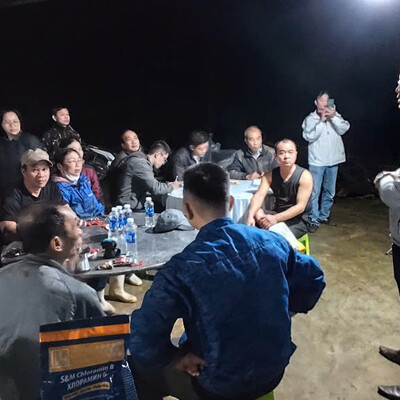
ILRI News
From field intervention to policy: food safety innovations becoming routine practices at pig slaughterhouses in Hue City, Vietnam
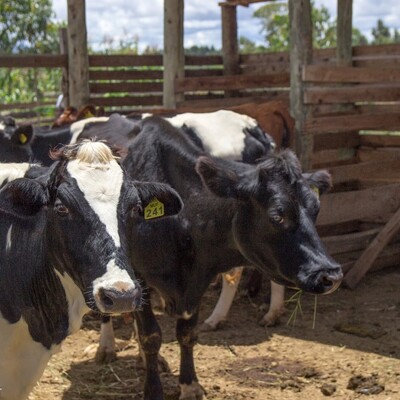
Opinion and analysis
Sustainable manure management in Uganda requires an enabling policy and legal framework: a call to action!
Related Publications

Sero-epidemiology of Coxiella burnetii in livestock and humans in Isiolo county Kenya
- Mutisya, W.M.
- Akoko, James M.
- Mwatondo, Athman
- Muturi, Mathew
- Nthiwa, D.
- Abkallo, Hussein
- Nyamota, Richard
- Wachira, T.
- Gathura, P.
- Bett, Bernard K.
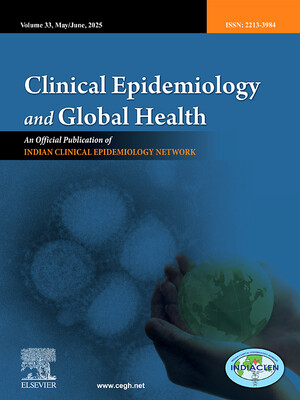
One Health perspective on rabies: Incidence and risk factors in humans and livestock in northwest Ethiopia
- Azalu, W.W.
- Mekonnen, S.A.
- Jemberu, Wudu T.

Species diversity and risk factors of gastrointestinal nematodes in smallholder dairy calves in Kenya
- Cheptoo, Sylvia
- Yalcindag, E.
- Gordon, L.G.
- Rukwaro, Benson
- Kimatu, Joseph S.
- Wasonga, Joseph
- Karani, Benedict E.
- Ndambuki, Gideon
- Migeni, Susan
- Kagai, Jesse
- Kiprotich, Linus E.
- Saya, Nelson
- Vasoya, D.
- Nangekhe, Gertrude
- Onguso, J.
- Mungai, G.
- Bronsvoort, B.M.
- Cook, Elizabeth A.J.
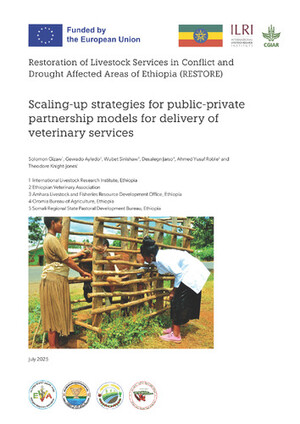
Restoration of Livestock Services in Drought and Conflict Affected Areas of Ethiopia (RESTORE): Scaling-up strategies for public-private partnership models for delivery of veterinary services
- Gizaw, Solomon
- Ayledo, G.
- Sinishaw, W.
- Jarso, D.
- Roble, A.Y.
- Knight-Jones, Theodore J.D.





